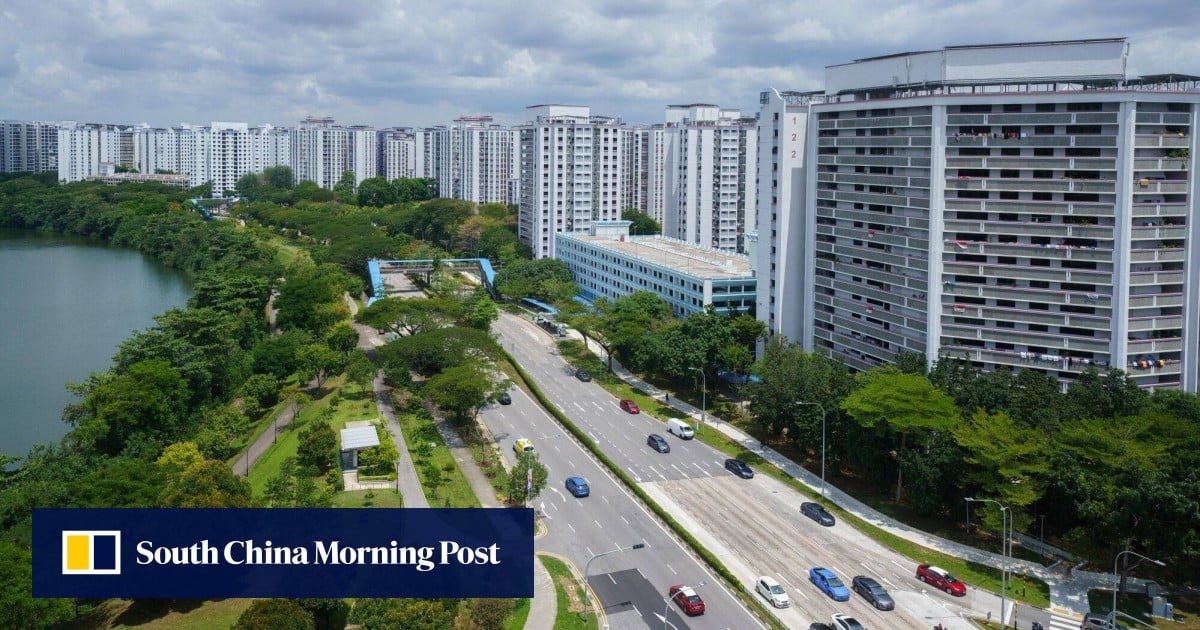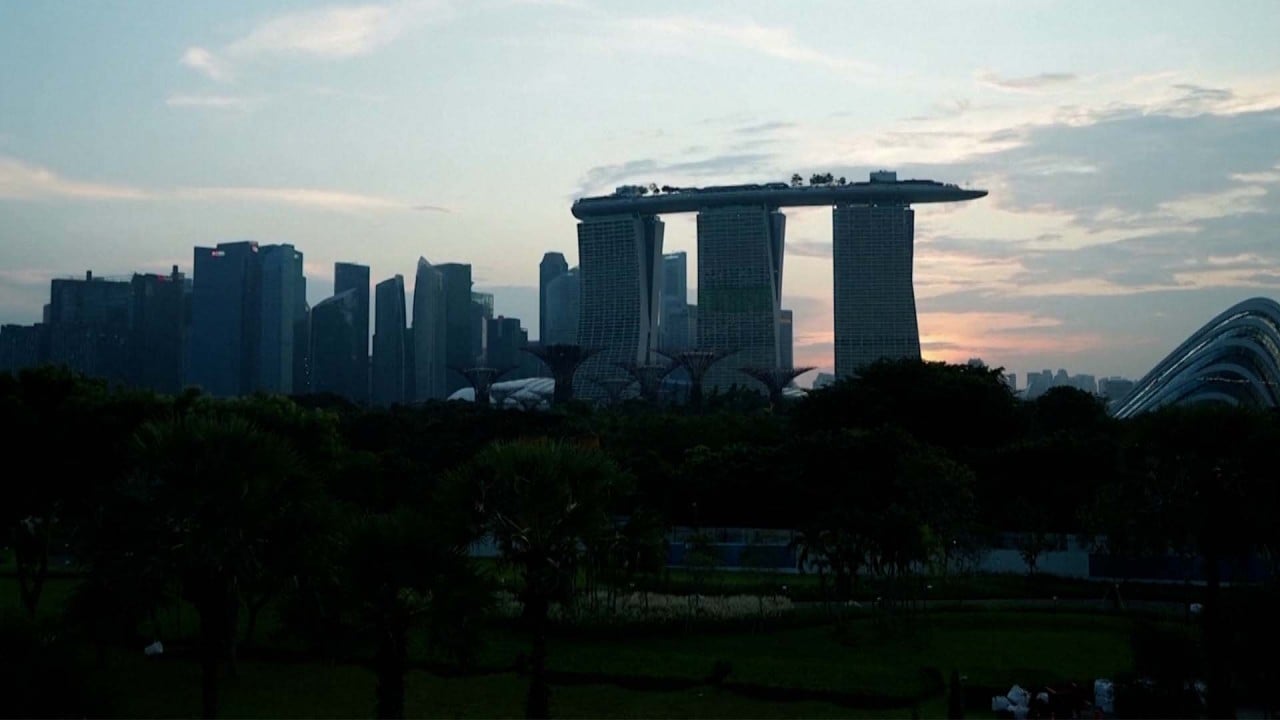However, Wong struck a reassuring tone, insisting that the backlog of new housing inventory will be cleared by early next year and stressing that the government’s ambition to launch 100,000 new flats between 2021 and 2025 remains on track – a goal he believes has already started to stabilise the property market.
“Our current house price-to-income ratios are significantly lower than most cities in the world like London, Sydney and Hong Kong, but there’s still work to be done,” he said.
In an effort to rein in runaway housing costs, Singapore’s government has implemented a raft of changes since 2020, including increases to stamp duties on residential properties and the introduction of a prime-location public housing model that claws back subsidies when owners sell their centrally-located flats.

This feverish demand, exacerbated by pandemic-induced construction delays, has only heightened anxieties among Singaporeans fearful of being priced out of the property market – especially against the backdrop of broader cost-of-living pressures.
“As Singaporeans feel increasingly priced out of the property market due to the disproportionate media attention paid to outlier property prices, cooling measures tend to be perceived as too little, too late,” said Nydia Ngiow, managing director for Singapore at strategic advisory firm BowerGroupAsia.
Housing affordability has emerged as an existential challenge for the ruling People’s Action Party (PAP), which has governed the city state since its independence in 1965 but now faces a high-stakes election due by November 2025.
Ensuring that all Singaporeans have access to decent, affordable public housing has long been a pillar of the PAP’s political legitimacy. But rising expectations about the quality of homes within most people’s reach have only ratcheted up the pressure on the party to deliver.
Political analysts warn that the coming elections could prove particularly difficult for the PAP and its newly minted leader, as the party grapples with a range of challenges at home and abroad – from an increasingly fractured geopolitical landscape to a stronger public appetite for opposition and a dearth of willing and able political talent.
[The perception is] Singapore has become a place for the rich and that Singaporeans are becoming excluded and priced out from their homeland
The housing issue is likely to be used as political ammunition by the PAP’s opponents, who analysts say will aim to tap into deep-seated public anxieties over upgrading aspirations and home ownership.
These fears are more acutely felt among Singaporeans given the country’s compact size and rising cost of materials, said Kasthuri Prameswaren, a Singapore University of Social Sciences lecturer specialising in Singapore and Southeast Asia politics.
Law professor Tan went further, warning that this perceived competition for limited housing resources is poised to become a key electoral battleground – a marked contrast to the 2020 polls. “The class dimension will be raised and may likely be exploited, with one description being that Singapore has become a place for the rich and that Singaporeans are becoming excluded and priced out from their homeland,” he said.
But managing the housing situation will be no easy feat for Wong and his team, says Chua Beng Huat, a sociologist at the National University of Singapore.
“Buyers of resale flats feel that prices will keep going up and thus prefer to buy now rather than wait for the down market cycle,” he said.
“The government has practically rendered the public housing prices deflation proof, as serious deflation would hurt the existing flat owners who have to monetise their flat to fund their retirement. Serious deflation would turn into a political problem and electoral cost.”
The government’s latest round of cooling measures – including lowering the loan-to-value limit on financing from the housing authority from 80 per cent to 75 per cent – were aimed at crimping demand among homebuyers eager to upgrade their flats.
Authorities also increased support for lower-to-middle income individuals looking to buy their first home under the Enhanced CPF Housing Grant Families, with families and singles now eligible for up to S$120,000 and S$60,000 in assistance, respectively – up from the previous limits of S$80,000 and S$40,000.
The adjusted loan-to-value limit is aimed at forcing middle-income or above-average buyers to fork over more cash for expensive resale properties, said Christine Sun, head of research at OrangeTee & Tie Property.
This could help slow the pace of price increases for larger or more sought-after resale units, Sun said, though she cautioned that the upper part of the market may not be affected as they may not even qualify for an HDB loan.
To truly rein in the surging housing market, she argued, the government would need to “implement measures to address both demand and supply factors”.
“While the current tightening measures may not be too punitive this time around, they could still serve as a good stopgap solution to slow down demand and allow supply to continue to build up,” Sun said.
Resale demand may cool in the near term as buyers take stock of the new rules, said Lee Sze Teck, director of research at property agent Huttons Asia. But he predicted that demand will return – and prices will continue to rise.
“The changes may not achieve the intended cooling effect on the HDB resale market,” he said.

That said, the rising prices of resale flats are likely to benefit voters who are already homeowners, sociologist Chua said, adding that this group “far exceeds the numbers who are lining up for new BTO flats” – the latter of whom are also receiving generous cash grants to help with the down payment on their first homes.
Observers also broadly agreed that the government’s efforts to ramp up construction and clear the backlog of housing supply have significantly alleviated the issue for many Singaporeans, a move that is likely to pay political dividends.
At their peak, wait times for new Built-To-Order (BTO) flats were as long as seven years. But the government has been able to reduce these to the pre-Covid norm of three to four years, which Chua described as “more effective in reducing political pressure than cooling measures”.
Indeed, the government appears to be gearing its approach towards building in excess of demand, said law professor Tan – though he cautioned that “the institutional commitment to this intent seems to waver from time to time”.
Ultimately, housing’s inherent “class dimension” retains the potential to evoke a “visceral” response among voters, where “perception overrides facts and rationality”, Tan warned.
“The ground sentiment … is that high property prices are here to stay and that upgrading aspirations are thwarted makes the issue a potentially visceral one as it affects a broad swathe of the population and speaks to whether governance and the government have been effective … this speaks intimately to a Singaporean’s sense of place and belonging.”


